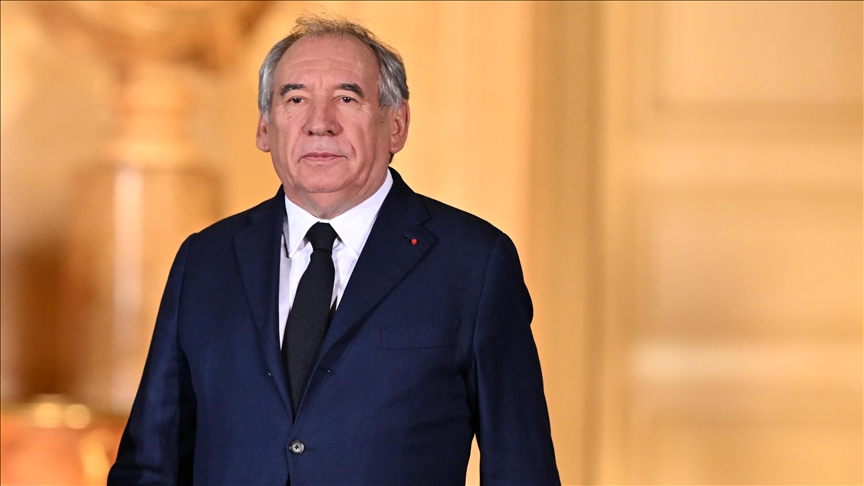Newly formed French gov't, Premier Bayrou survive 1st no-confidence vote
Only 131 lawmakers voted for motion, far from 289 votes required to adopt it, Socialist Party criticized for not backing motion
 French Prime Minister Francois Bayrou
French Prime Minister Francois Bayrou
ANKARA
The newly formed French government Thursday survived a first no-confidence vote.
Lawmakers at the National Assembly - the lower chamber of the French parliament - debated the no-confidence motion submitted by the left-wing France Unbowed (La France Insoumise or LFI) against Premier Francois Bayrou and his Cabinet.
Only 131 lawmakers voted for the motion, far from the 289 votes required to adopt it, broadcaster BFMTV reported.
The Socialist Party’s decision to vote against the motion sparked a debate among the left alliance New Popular Front (NFP) and was criticized by the other components of the alliance, namely LFI, the Communists, and the Ecologists.
Bayrou was appointed prime minister on Dec. 13. Opposition parties, particularly LFI, vowed to submit no-confidence motions against Bayrou's government from the very beginning.
Bayrou’s predecessor Michel Barnier and his Cabinet were toppled on Dec. 4 with a no-confidence vote, two days after Barnier used his discretionary powers to pass the contentious social security budget bill without a vote in parliament.
After the government collapsed, President Emmanuel Macron announced that a special budget law should be debated and adopted by lawmakers before beginning work on a new budget for 2025.
The country has been in political upheaval since June when Macron's centrist bloc failed and the far-right party National Rally (RN) won the European Parliament elections.
In response, Macron called for two rounds of snap parliamentary elections on June 30 and July 7, but no party won 289 seats, a threshold to achieve an absolute majority in the National Assembly.
The left-wing alliance NFP won the most votes and seats in parliament in the second round and later insisted that the prime minister must be from the alliance, but it failed to nominate a consensus candidate for the position immediately.
After weeks of internal divisions, the NFP nominated Lucie Castets for the prime minister slot on July 23.
However, Macron rejected a left-wing candidate and said he would not appoint a premier until mid-August after the Paris Olympics.
He faced criticism for delaying the process, fueling further instability after he accepted then-Prime Minister Gabriel Attal's resignation on July 16 after initially rejecting it on July 8.
On Sept. 5, Macron finally appointed Barnier, a center-right politician, former European commissioner and former foreign minister, as prime minister.
Barnier's government became the first one to collapse with a no-confidence vote since 1962 and only lasted three months.
Anadolu Agency website contains only a portion of the news stories offered to subscribers in the AA News Broadcasting System (HAS), and in summarized form. Please contact us for subscription options.







